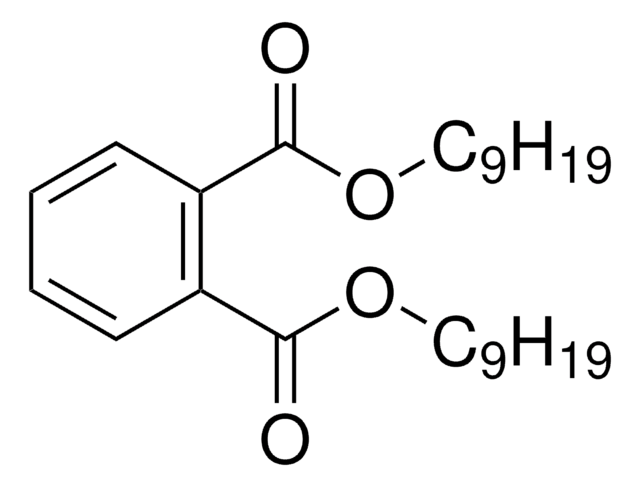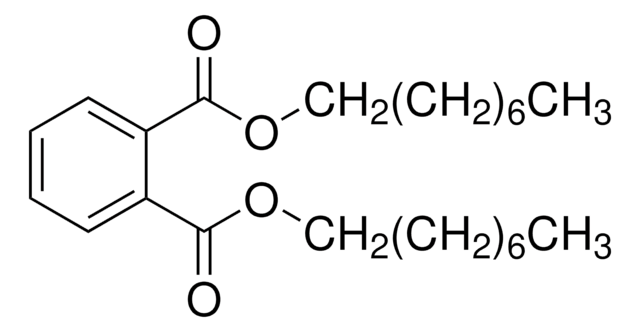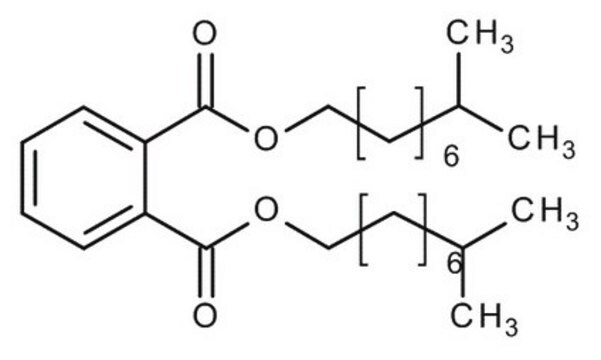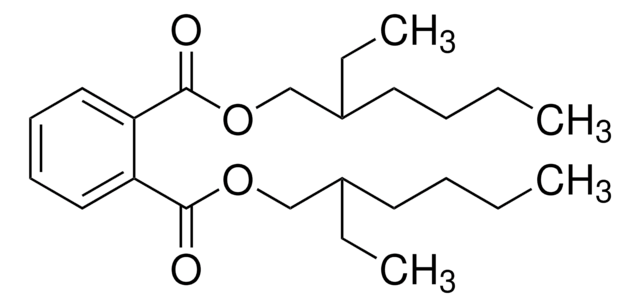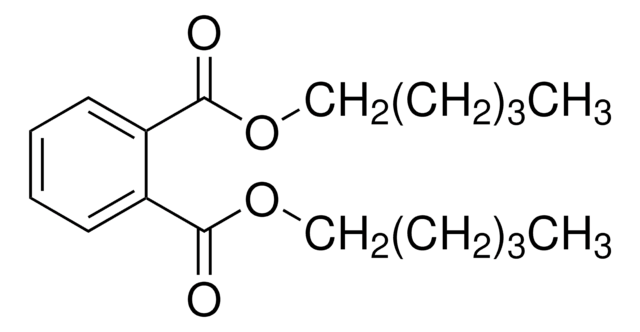80135
Diisodecyl phthalate
for ion-selective electrodes, Selectophore™, ≥99.0%
About This Item
Prodotti consigliati
Grado
for ion-selective electrodes
Livello qualitativo
Nome Commerciale
Selectophore™
Saggio
≥99.0% (sum of isomers, GC)
≥99.0%
Stato
liquid
Indice di rifrazione
n20/D 1.486
Densità
0.965 g/mL at 20 °C (lit.)
Stringa SMILE
O=C(OCCCCCCCC(C)C)C1=C(C(OCCCCCCCC(C)C)=O)C=CC=C1
InChI
1S/C28H46O4/c1-23(2)17-11-7-5-9-15-21-31-27(29)25-19-13-14-20-26(25)28(30)32-22-16-10-6-8-12-18-24(3)4/h13-14,19-20,23-24H,5-12,15-18,21-22H2,1-4H3
ZVFDTKUVRCTHQE-UHFFFAOYSA-N
Cerchi prodotti simili? Visita Guida al confronto tra prodotti
Descrizione generale
Applicazioni
Note legali
Indicazioni di pericolo
Consigli di prudenza
Classi di pericolo
Aquatic Chronic 4
Codice della classe di stoccaggio
10 - Combustible liquids
Classe di pericolosità dell'acqua (WGK)
WGK 1
Punto d’infiammabilità (°F)
527.0 °F - closed cup
Punto d’infiammabilità (°C)
275.00 °C - closed cup
Dispositivi di protezione individuale
Eyeshields, Gloves
Elenchi normativi
Forniamo informazioni su eventuali restrizioni prevalentemente per i prodotti chimici. Per altre tipologie di prodotto siamo in grado di fornire soltanto informazioni limitate. Nessuna segnalazione significa che nessuno dei componenti è citato in un elenco. È dovere dell’utilizzatore assicurarsi che il prodotto venga impiegato in maniera sicura e a norme di legge.
EU REACH Annex XVII (Restriction List)
Scegli una delle versioni più recenti:
Possiedi già questo prodotto?
I documenti relativi ai prodotti acquistati recentemente sono disponibili nell’Archivio dei documenti.
I clienti hanno visto anche
Il team dei nostri ricercatori vanta grande esperienza in tutte le aree della ricerca quali Life Science, scienza dei materiali, sintesi chimica, cromatografia, discipline analitiche, ecc..
Contatta l'Assistenza Tecnica.